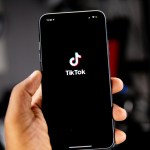News
Research from Oxford Economics, on behalf of Juvo, suggests that building financial identities for the financially excluded through mobile network data could represent a multi-billion-dollar revenue opportunity
According to World Bank data, 67% of the world’s adult population are excluded from the formal economy because of their lack of credit history. However, a large proportion of this population have existing relationships with mobile operators, who frequently extend low cost, low risk offers to these customers, often in the form of airtime loans. Analysing the repayment data on these transactions using machine learning, Financial Identity as a Service (FiDaaS) technology can generate financial identities for these customers, gaining them access to previously restricted financial services.
“There’s a huge crossover between the unbanked and the world’s mobile phone users,” explained Steve Polsky, CEO of Juvo. “With a financial profile in place, unbanked mobile users can tap into consumer financial services that wouldn’t have otherwise been available to them.”
Using FiDaaS technology, Oxford Economics modelled a scenario in which these ‘unbanked’ and underbanked consumers were given a functional financial identity, generated from mobile network data. The results of this scenario suggest that this untapped demographic could produce an estimated $250 billion in global revenue, as well as an average increase in GDP of $25 per person in South and Southeast Asia and $108 per person in Latin America and the Caribbean.
In fact, this estimation is a conservative one, not necessarily representative of the true scale of the underbanked population. As Anubhav Mohanty, lead econometrician at Oxford Economics, explained: “The sheer scale, depth and value of this opportunity is far greater than we’ve been able to quantify here.”
Using FiDaas to provide unbanked people with the means to have their own financial, mobile operators can help to tap a new market, expand the global economy’s capital base, and improve the lives of billions of people worldwide.
“Establishing financial identities through mobile network operators could have profound implications for governments, financial institutions, and for the millions of unbanked (and underbanked) individuals around the world,” concluded Steve Polsky.
Also in the news:
DARE1 cable on schedule to revolutionise connectivity in East Africa
DARE1 cable on schedule to revolutionise connectivity in East Africa


















